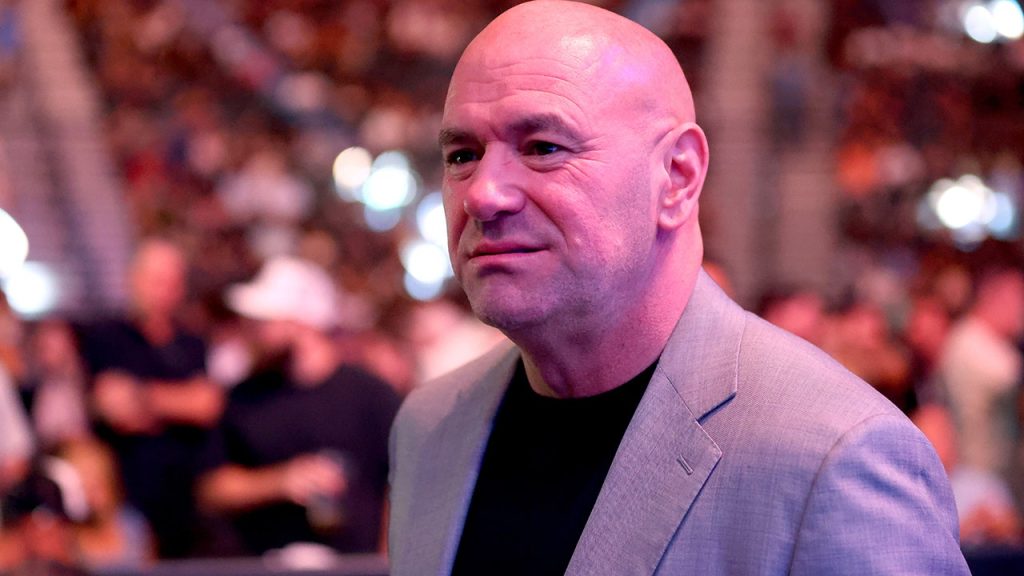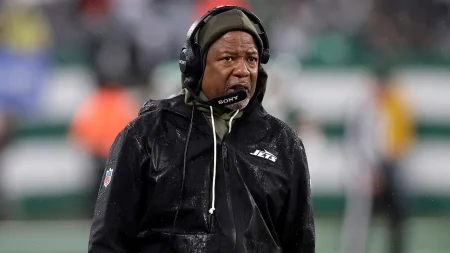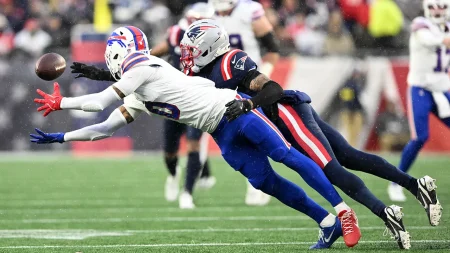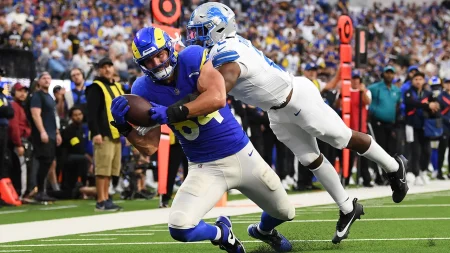Dana White: The High-Stakes Gambler and UFC President Who Defies Convention
Dana White, the charismatic and controversial president of the UFC, recently showcased his larger-than-life personality during a “60 Minutes” interview with CBS News reporter Jon Wertheim. The segment offered a glimpse into White’s gambling habits that would make most people’s knees buckle. During their conversation at the Bellagio Hotel and Casino in Las Vegas, White casually sat down at a private baccarat table and began betting an astonishing $400,000 per hand. With characteristic bravado, he complained about the casino’s unwillingness to let him wager his preferred amount: “Because these sissies won’t give me $1 million a hand.” It was a moment that perfectly encapsulated White’s bold, unapologetic approach to both business and life. The gambling session initially went poorly, with White down $1.24 million at one point. When asked about his willingness to risk such enormous sums, he responded with disarming self-awareness: “I’m a sick, sick guy. That’s the only explanation I can give ya.” Yet, in a dramatic turn of events that seemed almost scripted for television, White’s fortunes reversed completely. By the time he and Wertheim left the table, White had not only recovered his losses but walked away with a $700,000 profit. This rollercoaster of high-stakes gambling served as a fitting metaphor for White’s career—big risks, bigger rewards, and an unwavering confidence even when the odds seem stacked against him.
Beyond the gambling table, the interview delved into White’s role as the face of UFC, where he serves as CEO and president of what has become one of the world’s most successful sports promotions. White has been instrumental in transforming mixed martial arts from a controversial spectacle once branded as “human cockfighting” into a mainstream global phenomenon worth billions. Despite this success, White has faced persistent criticism regarding fighter compensation. Many argue that UFC athletes receive a disproportionately small share of revenue compared to competitors in other major sports leagues. White, however, defended the UFC’s pay structure during the interview, positioning himself as a business leader who has created unprecedented opportunities for fighters while building a sustainable enterprise. His defense comes as some fighters and critics continue to push for better compensation and benefits, highlighting the tension between the UFC’s commercial success and the financial reality for many of its athletes.
White’s candid nature extended to his views on free speech, where he staked out a position that stands in contrast to many corporate executives who carefully moderate their public statements. “I’m a big believer in free speech, and unfortunately probably the most important speech to protect is hate speech,” White stated plainly. This provocative stance reflects his broader distaste for what he terms “cancel culture” and his belief that people should be allowed to express themselves freely, even when their views might be considered offensive or controversial. White elaborated that he opposes attempts to silence voices across the political spectrum, specifically mentioning recent controversies surrounding conservative commentator Charlie Kirk. “These people are going out and saying stuff. And, you know, you’re seeing people getting fired or kicked out of school,” he noted with apparent disapproval, suggesting that such consequences represent an overreaction to speech he believes should be protected.
While White made clear his support for broad free speech protections, he also drew personal moral boundaries. “I think you’re a disgusting human being if you’re celebrating the death of another human being,” he stated, before adding a qualification that reveals his nuanced position: “but people make mistakes and people are gonna do dumb things. I don’t like trying to destroy people’s lives—over doing something dumb.” This perspective aligns with White’s well-established reputation for loyalty to his fighters, even when they find themselves embroiled in controversy. Throughout his tenure at UFC, White has often stood by athletes during personal scandals or public relations crises, earning him both praise for his loyalty and criticism for appearing to excuse problematic behavior. This approach to leadership—standing firm behind his people while allowing them the freedom to express themselves—has become a hallmark of White’s management style.
White’s willingness to take massive gambling risks, speak his mind regardless of potential backlash, and build a sports empire on his own terms all point to a man who operates according to his own rules. The “60 Minutes” segment effectively captured White’s singular personality—brash, unapologetic, and perpetually willing to bet big on his own judgment. These qualities have served him well as he’s guided UFC from near-bankruptcy when he and the Fertitta brothers purchased it for $2 million in 2001 to its eventual sale to Endeavor for approximately $4 billion in 2016. White’s continued leadership role after the sale speaks to his unique value to the organization; he isn’t merely an executive but a brand unto himself, inseparable from the UFC’s identity and its spectacular growth. His gambling excursion during the interview—walking away $700,000 richer after being down over $1 million—seems almost too perfect a metaphor for his business career.
The “60 Minutes” profile ultimately presented Dana White as he truly is: a complicated figure who embodies both the promise and the contradictions of American success. He champions free speech while running an organization that has faced criticism for its treatment of athletes. He takes financial risks that would terrify most people yet has built one of the most stable and profitable sports properties in the world. He speaks with unfiltered honesty in an era when most executives hide behind carefully crafted statements. Whether one views White as a visionary businessman who revolutionized combat sports or as a problematic figure who profits disproportionately from athletes’ sacrifices likely depends on perspective. What remains undeniable is White’s impact on mixed martial arts and his continued influence as one of sports entertainment’s most distinctive and polarizing personalities. As UFC continues its global expansion under his leadership, White remains committed to his personal philosophy: bet big, speak freely, and never apologize for either.














